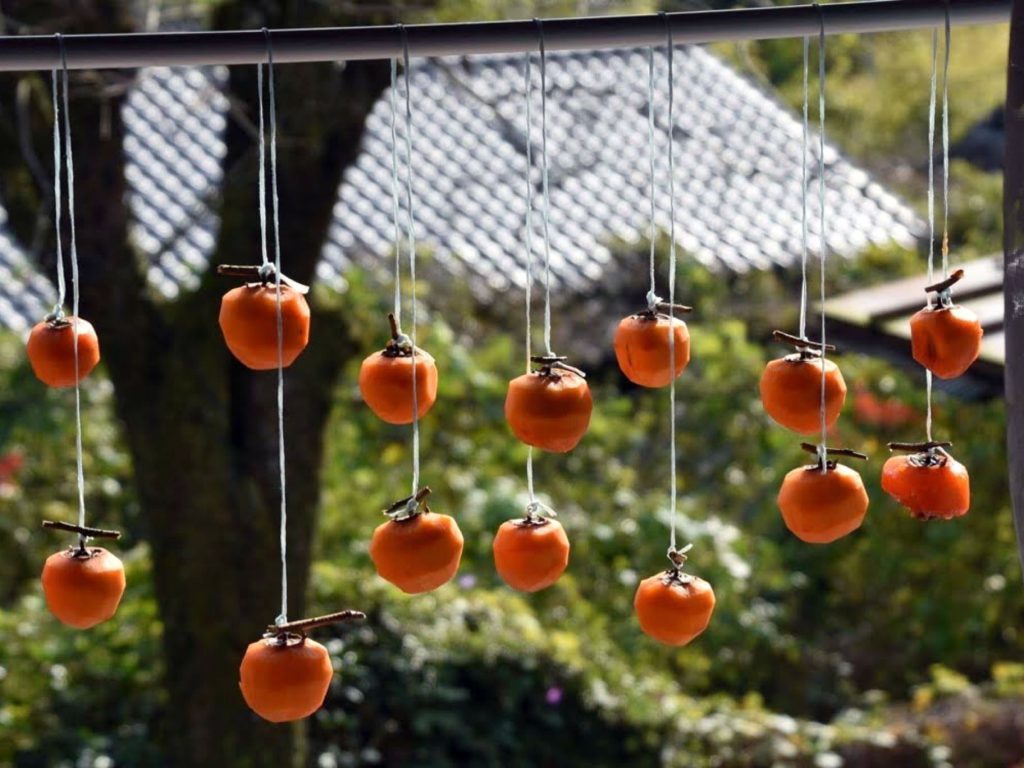
There are sweet persimmons and astringent persimmons. I think everyone has eaten astringent persimmons, but everyone can’t forget that strong astringent taste. I don’t think I want to eat it again. Crows are the same and never eat astringent persimmons. Tannin is the source of that bitterness. Persimmons are protected by a large amount of tannin while the seeds are immature. However, once the seed has grown sufficiently, they want to carry the seed far away. That’s why ripe persimmons become soft enough to be eaten by people and crows and lose their astringency. To put it simply, the fruit also breathes, but if this breathing is blocked, acetaldehyde accumulates inside the fruit, which binds with tannins and removes the astringency, making the fruit sweeter. Peeling the astringent persimmon to create an oxide film, soaking it in alcohol, or putting it in the refrigerator will remove the astringency. A recent interesting study reported that the astringent component of persimmons had the effect of inactivating the new coronavirus.
柿には甘柿と渋柿があります。皆さん渋柿を食べたことがあると思いますが、あの強烈な渋味は忘れられませんよね。もう二度と食べたくないと思います。カラスも同じで渋柿は絶対に食べません。あの渋のもとがタンニンです。柿は種子が未熟な間、多量のタンニンで守っています。しかし、種子が充分成長したら種子を遠くに運びたい。だから熟柿になると人やカラスに食べてもらえるように軟らかくなり、渋味がなくなります。そのメカニズムは、簡単に言えば、果実も呼吸をしていますが、この呼吸を妨げられると果実内に、アセトアルデヒドが蓄積され、これがタンニンと結び付いて渋みが抜けて甘くなるわけです。渋柿の皮を剥いて酸化被膜を作ったり、アルコールに付けたり、冷蔵庫に入れたりすると渋みが抜けます。最近の面白い研究では、柿の渋み成分が新型コロナウイルスを不活性化する効果があったと報告されています。
